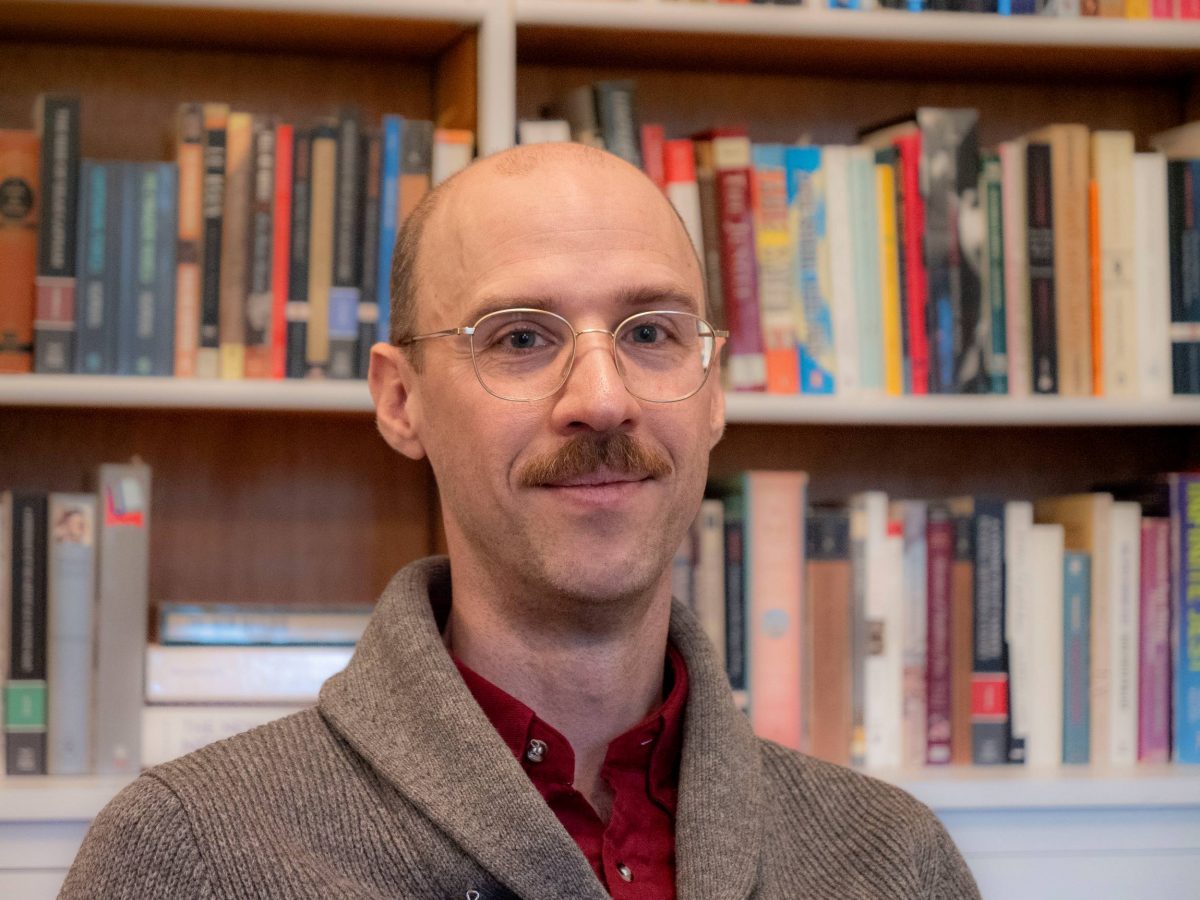Oriel College’s English Fellow researches how American novelists reacted to Trump’s 2016 election
© Gage Skidmore
A conversation with Dr Nicholas Gaskill about the emergence of President Donald Trump in American literature
On Wednesday 9 November, 2016, America and the world awoke to news of the election of President Donald Trump. Many liberal Americans expressed disbelief. As did numerous Republicans, some apparently having voted for Trump without believing it could amount to anything. American reality splintered and cracked. A new reality had come knocking.
Populating American discourse with fake news and alternative facts, more than any US politician before, Trump operated in a realm of fiction. And that confronted novelists with a predicament, says Dr Nicholas Gaskill, Fellow in English at Oriel College, in a conversation about his current research. When the problem with politics is a surfeit of fictions, surely the remedy was more and better facts. But where did that leave fiction writers?
Gaskill observes that in the years after Trump’s 2016 election, many novelists grappled with questions about the fractured nature of US reality and the political effects of fictions by staging Trump’s election in their work.
“The thing that interested me in writing about these novels is that they build in fact, and a hunger for fact, into the fiction,” he says.
While American novelists are no strangers to worrying about their dealings with American reality, Gaskill argues that the wave of novels depicting the accession of President Trump stands apart from what had come before.
Before, American novelists had worried about American reality because it seemed to throw up fantastical narratives beyond their imaginations. The worry was in effect a technical one about how they could possibly conjure up fictions as interesting as American reality is anyway.
Trump’s election heightened that worry, says Gaskill, but also, owing to Trump’s loose grasp of truth, compounded it with a further concern about American reality getting lost altogether.
“Something about the blatant lies propagated by the Trump administration,” he adds, “pushed novelists to want to ground readers in reality and be absolutely clear on distinguishing fiction from fact. And yet that desire ran against the actual workings of novels, which rely on fictionality and the indirections of art.”

Gaskill suggests that several of the novels staging Trump’s election attempt to comprehend the events of 2016 by taking the realities of Republican voters seriously, in order to figure out what makes them feel so valid.
He gives the example of Homeland Elegies by Ayad Akhtar, one of five novels he is focusing on: “The key Trump voter is the narrator’s father, who is a Pakistani immigrant, somebody who you wouldn’t expect to vote for Trump. A lot of the novel is his son asking, ‘Why did you vote for Trump?’ and trying to make sense of that action in the broader context of American politics.”
By reacting to Trump’s election through their work, Gaskill argues, American novelists were effectively cashing in on their knowledge of what gives fictions a sense of reality to give an insight into why Americans bought into Trump’s alternative facts.
The novels staging the election also highlight some of the shortcomings of thinking about the event solely in terms of facts and how they get distorted, Gaskill suggests.
“That way of thinking suggests that the way to engage Republican voters is to say, ‘Let’s show you the real facts,’ but that didn’t work,” he says.
“I think the approach of instead asking, ‘What are the conditions that make your position feel so real and live?’ is more promising, because it might give us some practical orientation as to what is happening when something that is objectively false, objectively untrue, feels very real for some.”
Gaskill’s optimism about the latter approach reflects his sympathy with the convictions of American pragmatists like William James, who see literature and the arts as effective ways of clarifying elements of human experience which elude scientific modes of analysis.
His research on the literary reaction to the election of Trump forms part of a bigger project about the ideas of reality and aesthetic construction which have shaped American fiction over the last century.